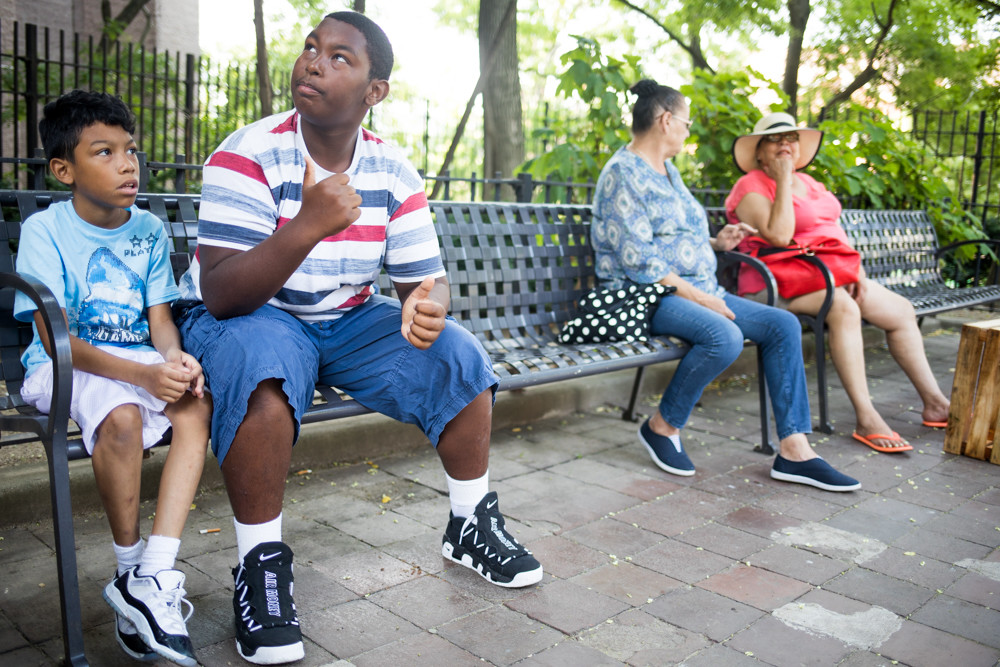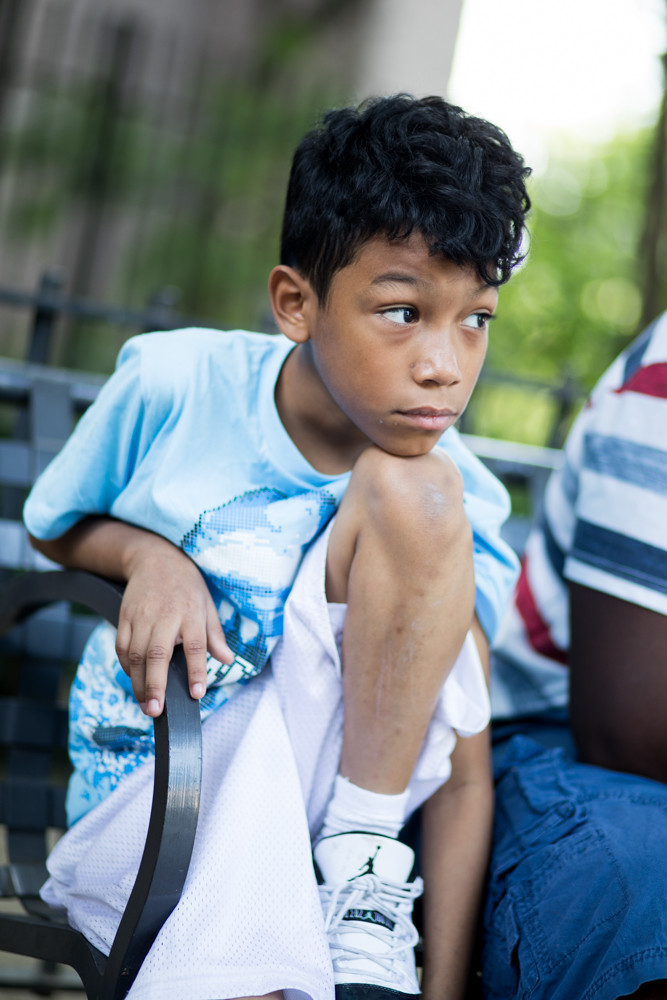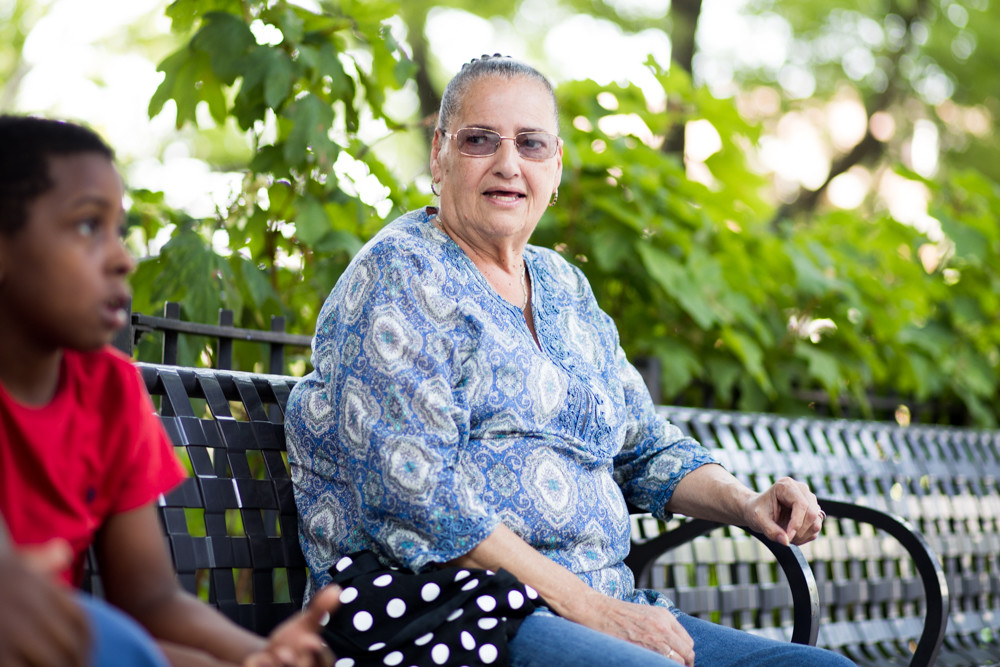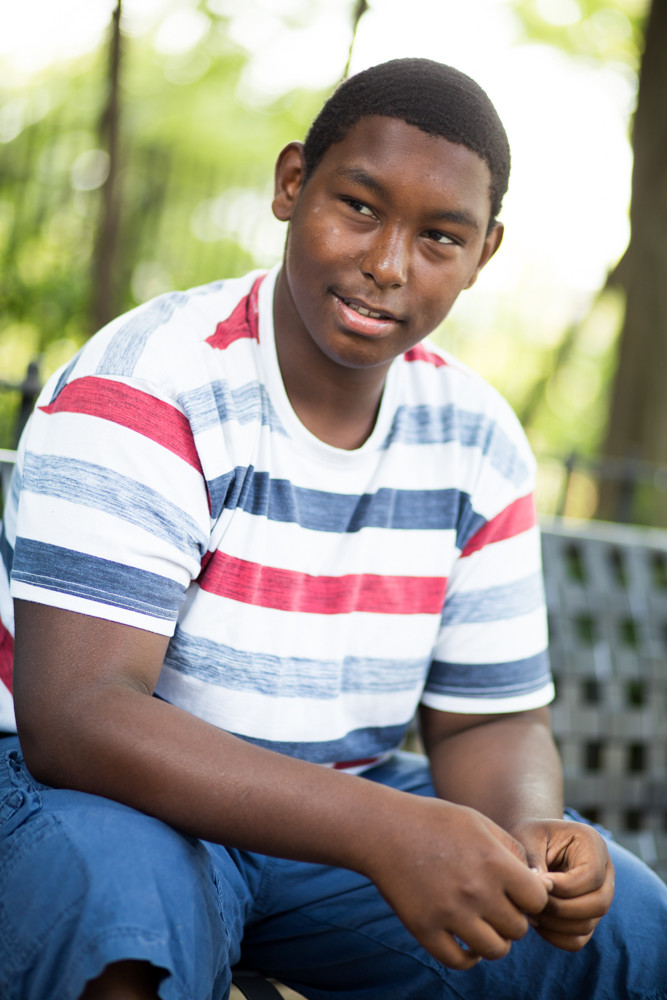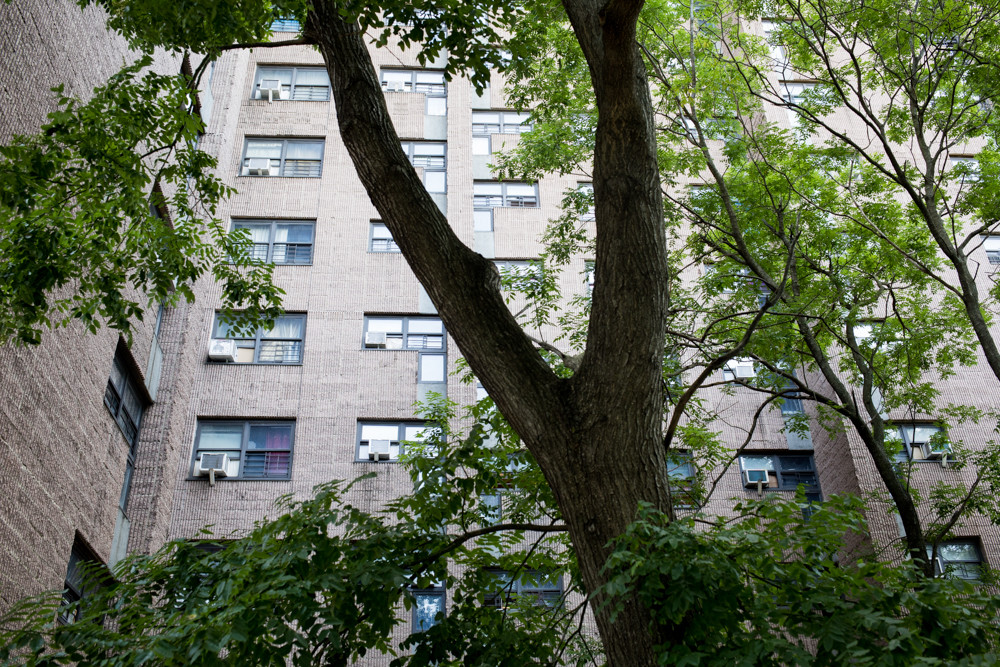Activist mother, lawmaker create bill to battle lead crisis
After lead poisoned her daughter, Tiesha Jones set upon a mission to ensure it didn’t happen to anyone else’s child.
She’s teamed up with state Sen. Gustavo Rivera to fashion a bill known as “Dakota’s Law” to expand the number of children considered at risk for lead poisoning in both public and private housing. It’s named for Jones’ daughter, Dakota Taylor, who registered an elevated level of lead poisoning while living in the New York City Housing Authority’s Fort Independence Houses in 2010.
Lead is particularly harmful to the developing brain and nervous system of young children, according to the Centers for Disease Control and Prevention.
Jones took on NYCHA, with a Bronx jury awarding $58 million against the housing authority last January for its failure to inspect Jones’ apartment for lead paint as required.
“After the court case was over, I figured I don’t want this to happen to any other children,” said Jones, whose family now resides in Bailey Houses on Heath Avenue. “I said, ‘I need to come up with a solution.’”
The bill establishes a comprehensive system of preventive measures to address elevated blood-lead levels in children statewide, Rivera said. It starts by lowering the threshold of when a child has too much lead in their blood — from 10 micrograms per deciliter to 5.
It brings the state in-line with the CDC’s definition of elevated blood-lead levels, which gives health officials and doctors more time to address exposure before it causes permanent damage.
The bill also raises the age of children protected and screened under state law from 6 to 18, and requires doctors to report elevated blood-lead levels to city and state health departments.
“This was a work of love,” Rivera said, “the direct result of a constituent coming to me and explaining to me the situation they found themselves in, and things that could be done to actually make that situation better.”
Additionally, the bill mandates private insurers and Medicaid to cover lead screening and testing, while including lead exposure testing as part of statewide immunization information.
The bill comes amid mounting alarm over the presence of lead in the city’s public housing and accusations that NYCHA failed to perform required lead paint inspections in its apartments while covering up the scope of the problem from the public.
NYCHA supports Rivera’s bill, according to spokesman Michael Giardina. Meanwhile, the agency is enhancing its lead assessment and repair efforts to make NYCHA homes as safe as possible, Giardina said, but wouldn’t provide details.
The state’s health department also commended the bill as a step in the right direction.
“We support legislative efforts to update state laws addressing lead exposure,” spokesman Jonah Bruno said. “When we receive the bill, we will review it.”
While it may have been personal tragedy that incited Jones to act, her efforts have broad implications for the more than 170,000 families living in public housing across the five boroughs.
Lead’s lethal effect seared itself into the memory of Anjanette Delgado from an early age.
“Before I was born, my mother had a son who died from lead,” said Delgado, Jones’ Bailey Houses neighbor. “She had just come from Puerto Rico, and he was eating the paint chips off of the wall” of their Brooklyn home. “She kept moving his crib, and he kept on. By the time she realized what was going on, he was having convulsions.”
Now Delgado worries about her own son, Jeremy Lopez, 14, who registered what is now considered an elevated blood-lead level by current CDC guidelines, Delgado said, when he was around 6.
“I knew of the dangers,” Delgado said. “I was scared.” Doctors “told me that the level wasn’t high enough to worry about it yet. But I saw a difference in my son.”
Jeremy developed a speech impediment, Delgado said. He was placed in special education classes. Despite all that, “he’s done pretty well in school,” Delgado said. “He was a fast learner when he was little, but I’ve seen his development slow down.”
She suspects damaged, aging tiles in her apartment may have been partly to blame.
“I complained about it a lot” to NYCHA, Delgado said. But instead of eradicating the problem, NYCHA put more tiles on top of the old ones.
“It’s just a cover-up,” Delgado said. “I figured they’d cover it up.”
Rivera is confident the bill will prove a potent weapon for parents, doctors, health and housing officials, and even school administrators, in fighting lead exposure and poisoning.
“Having sick kids is a bad thing for everybody,” Rivera said. “Identifying not only children who are currently exposed, but identifying the sources of these potential exposures, and eliminating them, is essential.”
The bill is currently in the senate rules committee, and could be picked up in the next legislative session in January.
“Regardless of where you are — Democrat or Republican or anything in between — this is something we can all agree on,” Rivera said. “I’m hoping that I can work to pass it next year.”

